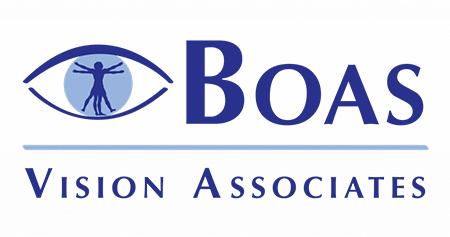
Diabetes is associated with several eye health issues including cataracts and glaucoma, but the most well known diabetic eye disease is diabetic retinopathy.
Diabetic Retinopathy
Diabetic retinopathy is an eye disease that only affects diabetics. Diabetes causes the blood vessels to weaken and they can leak blood, water, and/or cholesterol. New, abnormal, weak blood vessels can grow in the eye and are at risk for hemorrhage. During the beginning stages of the disease, there may be no noticeable symptoms, so it’s important to have your eyes checked at least once a year, if you have diabetes.
Once symptoms of diabetic retinopathy do develop, they can include: dark or black spots in your visual field, or blurry vision, and it increases over time. This is a result of bleeding at the back of the eye, which prevents a clear image from being transmitted from the retina to the brain.
Whether you have type 1, type 2, or even just gestational diabetes, you are at risk for developing diabetic retinopathy. The longer you have had the disease, the greater the risk. It is essential to keep your blood sugar levels under control to prevent vision loss, and this may require a trip back to your primary care physician.
Treating diabetic retinopathy can include vitrectomy, replacing the inner gel-like substance that supports the eyeball structure, and laser surgery.
Special thanks to the EyeGlass Guide, for informational material that aided in the creation of this website.
Boas Vision Associates is committed to your eye health:
Our doctors are seasoned professionals at preventing and managing your diabetes in close cooperation with your primary care physician and/or your endocrinologist. A dilated retinal exam will be performed annually to determine if there are any signs of early retinopathy. High definition, ultra-widefield photography will be performed along with computerized laser scanning ophthalmoscopy to monitor closely the health status of the retina. We also offer close cooperation and co-management of advancing retinopathy with local retinal specialists. Many of these cases simply need to be monitored by our doctors, but in the event of complications, appropriate referral and co-management is available.

By Appointment Only